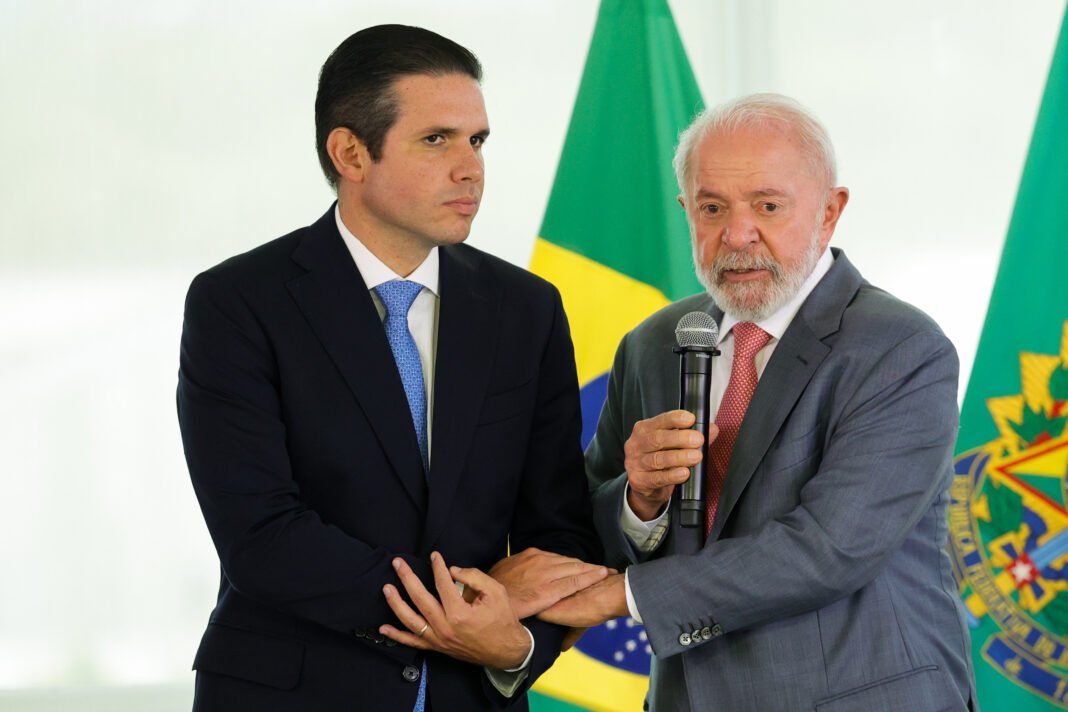The federal government and the National Congress have engaged in a series of clashes and negotiations involving key issues on Brazil’s political and economic agenda. With just over a year before the 2026 elections, the Lula administration is attempting to advance proposals that may underpin the president’s potential bid for a fourth term. The Lula administration’s decision to raise the IOF tax rates to boost revenue sparked a strong backlash from both lawmakers and the private sector, intensifying tensions with Chamber Speaker Hugo Motta. Meanwhile, the Senate advanced a constitutional amendment to end reelection for executive positions, as the government recalibrates its political strategy by focusing on smaller-scale projects under the new Growth Acceleration Program (PAC). Amid international disputes involving the Supreme Court and criticism of the far right, concerns have also been raised about a shortage of qualified personnel to carry out critical infrastructure plans.
This Content Is Only For Subscribers
To unlock this content, subscribe to INTERLIRA Reports.
Government Agenda
With one year and four months to go until the 2026 elections, the Lula administration (PT) has outlined a series of proposals that could form the core of the president’s potential campaign for a fourth term. However, instability within the government’s support base in Congress has undermined the Planalto Palace’s control over both the content and timing of these initiatives. Key topics—such as the expansion of income tax exemptions, increased revenue through the IOF hike, the Public Security PEC, electricity bill exemptions, social media regulation, and labor rules for app-based workers—face resistance in both the Chamber of Deputies and the Senate. Many of these proposals are expected to be significantly modified, and some may not even come to a vote.
Smaller Projects
Without a major project to exploit electorally in the new Growth Acceleration Program (PAC), the federal government decided to recalculate the initiative’s political strategy. While the initial aim was to make it a showcase of Lula’s (PT) administration, difficulties in branding and budget cuts redirected investments toward local projects that could bring electoral returns for the PT candidate. Instead of railways, hydroelectric plants, and refineries—previous PAC trademarks—the focus will now be on the openings of health clinics, daycare centers, and the delivery of ambulances. The narrative adopted by the government is that Lula should appear in events that connect him with the population at the grassroots level, highlighting that these works are the result of his administration.
Lack of employees
The budget cuts mentioned above have also created another obstacle for the government: the lack of employees. Hundreds of transportation infrastructure projects and concessions planned for 2025 and 2026 are at risk of delays due to staff shortages. Federal government agencies themselves report a lack of qualified personnel in key positions to manage the expected workload. Documents from the Ministry of Ports and Airports highlight the difficulties faced by public servants in fulfilling their responsibilities. At the Ministry, the staff shortage affects several departments, especially the CGLC (General Coordination of Logistics and Contracts), which oversees all bidding processes, contracts, assets, transportation, administrative services, and document management for the agency.
IOF Tax Increase
Amid this financial difficulty, on 22 May, the Lula government announced an increase in the IOF to collect an additional R$20.5 billion this year and R$41 billion in 2026. The measure sparked strong reactions from the private sector and from members of parliament, who are already planning to try to overturn it. The Speaker of the Chamber of Deputies, Hugo Motta (Republicans), stated that the environment in Congress is favorable to overturning President Lula’s (PT) decree that increased the rates of the Tax on Financial Transactions (IOF). Motta also said that Congress is willing to discuss reforms to balance the public accounts but believes the government “seems to be pursuing maneuvers that resemble makeshift solutions to increase revenue.”
Nod to Hugo Motta
After the general rejection, President Lula (PT) made gestures toward the Speaker of the Chamber of Deputies, Hugo Motta (Republicans), amid the stalemate over changes to the IOF. He also criticized the Donald Trump administration over its clash with STF Minister Alexandre de Moraes. The president also defended Moraes, who may become the target of sanctions by the Trump administration.
End of Reelection
The Senate’s Constitution and Justice Committee (CCJ) approved on Wednesday (21/05) a Proposed Amendment to the Constitution (PEC) that ends reelection for mayors, governors, and the president of the Republic. The text proposes increasing the term of office for all elected positions. It also reduces the term of office for senators to five years starting in 2034. In addition, the PEC unifies the dates of municipal and general elections in 2034. The proposal will now move on to a vote in the Senate plenary.
Analysis:
With just over a year remaining until the 2026 elections, the Lula administration finds itself navigating a fragmented and increasingly volatile political landscape. While the government has laid out a broad agenda that includes fiscal reforms, social welfare measures, and regulatory initiatives, its limited control over Congress—coupled with growing friction with key figures such as Chamber Speaker Hugo Motta—has severely hindered the advancement of flagship proposals.
The IOF tax hike, intended to bolster revenue and ease fiscal pressure, has become a flashpoint, drawing criticism not only from the private sector but also from within the legislative branch. The backlash signals a deeper erosion of congressional support, even among parties once considered part of the governing base.
In response, the government has scaled back its ambitions. The recalibration of the Growth Acceleration Program (PAC) in favor of smaller, locally focused projects reveals a tactical shift. Rather than pursuing large-scale infrastructure works, the administration is betting on grassroots visibility to secure electoral dividends.
Sources: G1 [1], [2]; A Folha de SP [1], [2], [3], [4], [5]; O Globo.




